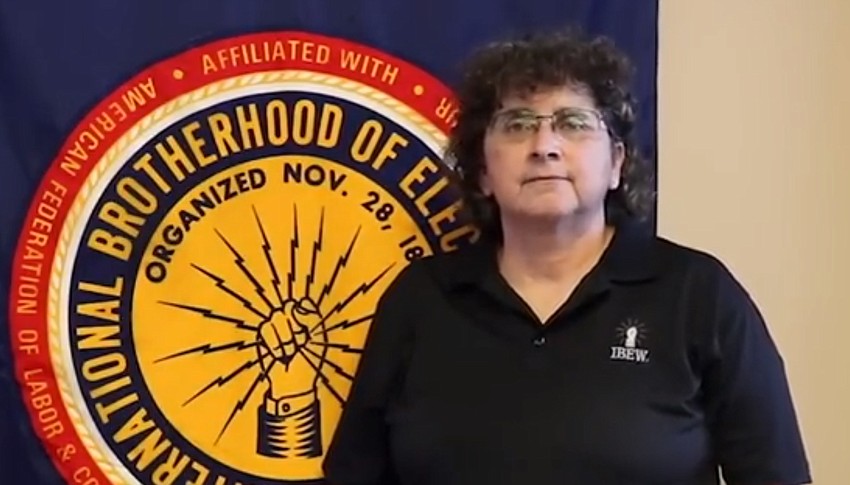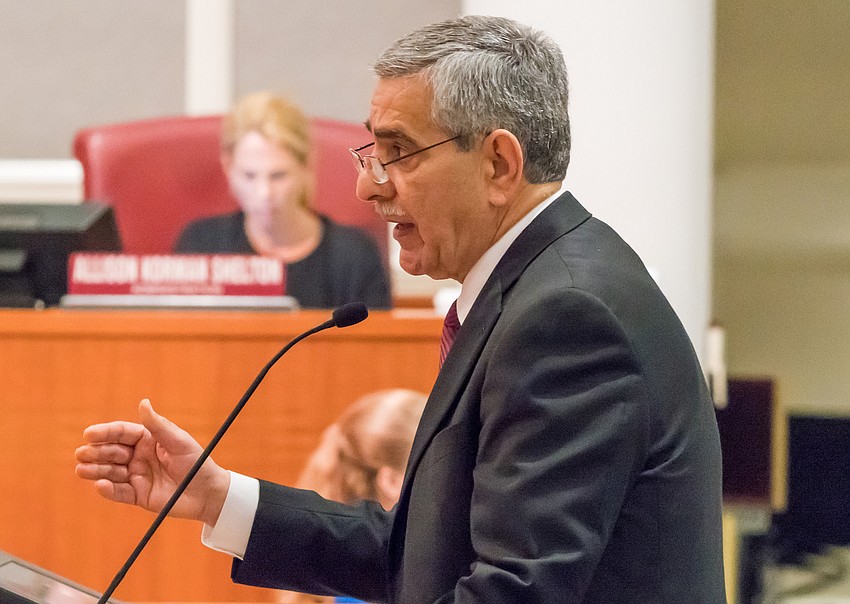
The criminal trial of former JEA executives Aaron Zahn and Ryan Wannemacher is scheduled to resume March 8 without jurors being present for hearings related to a request by the government to present witnesses not included on the witness list filed by prosecutors before the trial began.
The supplemental witnesses are Herschel Vinyard, former JEA chief administrative officer, and Jon Kendrick, former JEA vice president of human resources. The government also put former JEA board member Camille Lee-Johnson on a supplemental witness list after also including her on the original list.
Lee-Johnson requested to not appear in the trial. Her attorney, Vincent A. Citro, told Senior U.S. District Judge Brian Davis that she intends to invoke her Fifth Amendment right to remain silent.
The Fifth Amendment provides that “no person shall be compelled in any criminal case to be a witness against himself.”

Lee-Johnson was the chair of the JEA board’s compensation committee in 2019 when the board adopted an employee incentive program at the center of the government’s case against Zahn and Wannemacher. Lee-Johnson also was poised to be the plan administrator if it had been implemented.
Among the board members from 2019, she is the only one who hasn’t testified in the trial.
Davis denied the request for Lee-Johnson not to appear. She is expected to be on hand for the hearings March 8.
The March 8 hearings will focus on whether testimony from those witnesses would violate what are known as Garrity protections for Zahn and Wannemacher.
Those protections cover public employees who are compelled to speak under oath in connection to workplace investigations. In those cases, the Garrity rights are in place to prevent the employees’ sworn statements from being used against them in a criminal case.
The hearings are designed to determine whether prosecutors can prove that their case was not built on protected statements, either directly or indirectly.
At issue are statements that Zahn and Wannemacher gave in late 2019 and early 2020 as the city and JEA investigated the potential sale and bonuses.
Stowe: Utility in good shape
Depending on whether the witnesses are allowed to testify, the government’s case may have concluded with the testimony of JEA CEO Jay Stowe on March 7.
Stowe told jurors that the utility was in good shape financially when he became its top executive in November 2020. That testimony supported a government argument that Zahn and Wannemacher deceived board members into believing JEA was failing and needed to be sold, which would have triggered tens of millions of dollars in bonuses for the two defendants under the incentive plan.
Stowe said projections in place during 2019 about the impact of rooftop solar on JEA’s revenue hadn’t played out but that the utility was being affected by the increased energy efficiency of homes, business and appliances.
Union leader ‘backlashed’
Valerie Gutierrez, an International Brotherhood of Electrical Workers union manager who works for JEA, testified that she had difficulty getting answers to questions from the utility’s leaders about how JEA’s workforce would be affected by planning scenarios developed in 2019 to privatize the city-owned organization.

One of those scenarios had JEA laying off more than 400 employees, raising rates by 26% and discontinuing its annual financial contribution to the city.
Gutierrez told jurors that she occasionally got “backlashed” for asking Zahn and his leadership team for details about events that took place at the time.
Defense attorneys have portrayed Zahn and Wannemacher as being transparent with staff, board members and community leaders during the process.
“At that time, nobody knew who was going to be laid off,” Gutierrez said, referring to the time the scenarios were being discussed. “It was still up in the air about who would have been laid off. We kept asking, what does this mean? Who are you referring to? We didn’t find out until much later what those numbers meant.”
Spending sale revenue
Sam Mousa, former chief administrative officer for the city of Jacksonville under Mayor Lenny Curry, testified that the administration developed a three-pronged plan for how the revenue from a sale of JEA would have been used.

Mousa said the money would have paid off the city’s debts, which at that time totaled about $2 billion; paying for capital improvement needs and making long-term investments. The investment returns would have replaced JEA’s annual contributions to the city budget.
The JEA board approved the incentive plan and initiated a possible sale of the utility during a meeting in July 2019. In November, the City Council Auditor’s Office released a report showing that the payouts from the incentive plan were far higher than originally believed, and could exceed $300 million if the utility was sold. In December 2019, the board rescinded the plan and halted the sale process. Zahn and Wannemacher were fired in early 2020.
After jurors were dismissed for the week, Davis closed the courtroom briefly for a hearing related to the defendants’ Garrity rights.
Zahn and Wannemacher are charged with conspiracy and wire fraud, which carry a maximum combined prison term of 25 years. The trial is being held in the Bryan Simpson U.S. Courthouse.
Jurors were dismissed about 2:30 p.m. March 7 and are scheduled to return at 9 a.m. March 11.
Jacksonville Daily Record news partner News4Jax contributed information to this story.